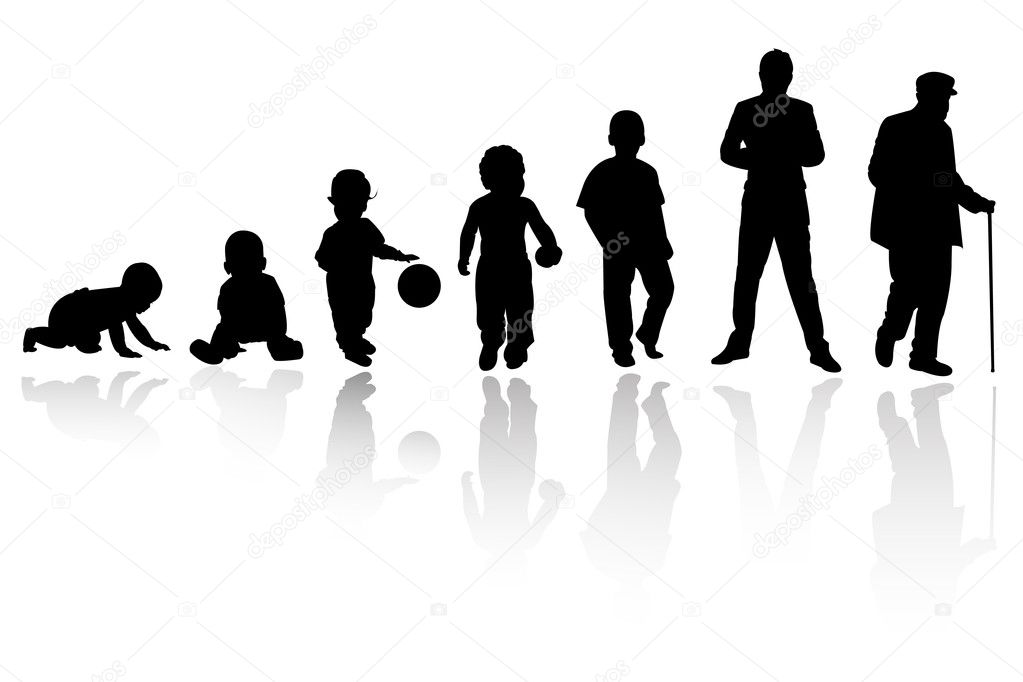These eight stages are: infant, toddler, preschool, school age, young adult, middle adult and late adult. In each stage there are lessons and challenges, both positive and negative, and knowing them can give us some control over our lives. If there are negative pre-stages, problems can develop later in life. Being aware of these negatives can give us the opportunity to correct and change these perceptions and make them positive.
– The infant learns trust if he has been raised in a positive, nurturing environment. And distrust if he has not been fed when he’s hungry, kept warm and dry when needed or given love and caring when he cries. An infant entering into the toddler stage brings with him hope if he has learned and experienced trust in his infancy. Trust will have been based on his parents ability to give him sustenance and comfort when needed. Distrust can lead to withdrawal and lack of confidence in his next stage if these basic requirements have not been met.
– Toddlers develop interests and like to explore their environment. Highly restrictive parents are likely to instill a reluctance in a child to attempt new challenges in this stage. If parents or caregivers encourage self-sufficiency, children will become confident. If they are held back or their attempts at self-sufficiency are ridiculed, they will doubt their ability to try new things and will hesitate when presented with new challenges.
– Preschoolers, in the three to six year old stage, begin to develop courage and independence. If they are encouraged, supported and helped, they will develop initiative. But if they are discouraged and their attempts are dismissed as an annoyance, they will feel guilty for trying new things and may become timid.
– School age children are more developed, reasonable and cooperative. If they are encouraged, they will strive to achieve their goals and will persevere at their tasks until they are completed. But if they are discouraged or punished for their efforts, they will develop feelings of inferiority about their capabilities.
– Adolescents are learning to get a sense of their identity and to determine where their lives are going. This stage is a transition from childhood to adulthood and is a particularly difficult life stage with many challenges. The age they are when they enter into the young adulthood stage will be dependent upon when they have established their identity. This adolescent stage may end at twenty or twenty-five or whenever a person feels they have actually come of age and can feel their own sense of maturity.
– According to studies, young adulthood is in the twenties and thirties and is a time of intimacy where they are ready for long-term commitments in both close friendships or marriage. However, some at this age may enter into marriage/intimacy while still wanting to blend their identities with others, not having yet established their own personalities. If they are unable to determine their own unique identities and establish intimacy with another person, they may feel isolated as they grow older.
– Middle Adulthood depends on the growth in both the adolescent and young adulthood period and continues to age sixty-four. It is a stage of productivity and creativity. It is a time when families are being started and children raised. If pre-stages have been positive, they will be mature and socially responsible. They will maintain healthy life patterns, will help with aging parents and growing and grown children. If the pre-stages have been negative, it may be a time of stagnation and challenges.
– Late Adulthood is from sixty-five and onward and can be a stage of contentment or despair. If the pre-stages have been positive, they will be proud of their accomplishments, they will feel they are leading a productive and successful life and will accept the stage they are in. If they look back on their life as being unsuccessful, they will be dissatisfied and may feel depressed and hopeless.
According to research these eight stages, and what we have learned or not learned in each of these stages, will have an impact on our future lives. If we have had negative pre-stages, life will be more of a challenge for us in each stage.





